Visit North Korea: A Conversation with Intrepid Traveler Mar Pages
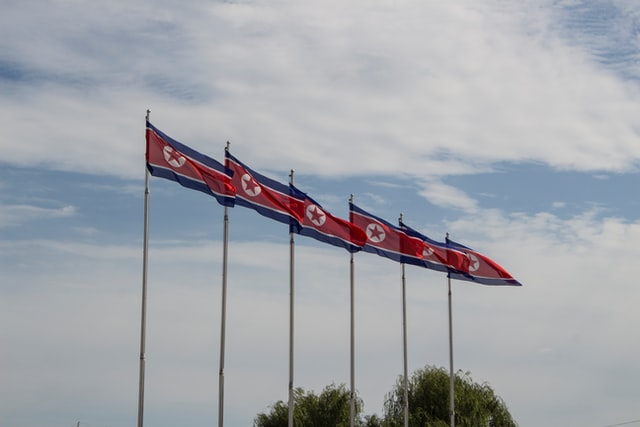
Visit North Korea: A Conversation with Intrepid Traveler Mar Pages
What brought you to North Korea? How did you have the opportunity to visit?
I had been fascinated by the country for a long time. I have been to almost ninety countries and I usually favor the less visited over the popular ones. I have never been to Germany or the Eastern or Nordic European countries, but I have visited and worked in over 25 countries in the Middle East and Africa. North Korea fit the profile – hard to get to, secretive, isolated and with a very specific international image. Curiosity won me over, I wanted to see it for myself.
Contrary to what one may think, visiting North Korea is not difficult – you only need time and money, not more than for many other destinations. You may join a tour for set dates, which is relatively affordable, or organize your private one. Because the group dates never fit my schedule I organized my own 7-day/6 -night trip with a friend.
What was your travel process like–including visas and flights?
To get to DPRK, the official name of the country, you first need to get to China or Russia. Traveling via Beijing is the most convenient way to get there. From Beijing, you can take the train or fly but you must spend a night there so you can meet the travel agent and get the briefing and the visa. This may differ if you come from other countries where there are local agents.
We used Koryo, the agent that has been operating in the country for the longest time and the best established, and they are based in Beijing. The visa process is seamless and innocuous. We didn’t have to send passports anywhere, simply fill out a couple of forms and provide a passport photo via email and we were set. The agency took care of the processing.
The caveat is that the visa is linked to the itinerary so you must finalize that before you apply and that needs to happen four weeks in advance. The visa is not stamped on your passport, you never get a mark on it. You simply carry a tourist card with you, hand it to the guides after you arrive, together with your passport, and get it back on the last day of your visit. You don’t get to keep that and this is where the immigration officers stamp.
Can you give us an overview of your itinerary?
My itinerary was meticulously planned and every minute of the day filled up. We had limited rest or downtime except during the evenings, when we could relax in our room. We had an extremely packed schedule. You can get all the details of our six-day trip here. As you would expect, the sights included lots of monuments, museums and statues. But we also had walks in parks, went to the beach, to a fun fair and to visit other more “interesting” sights like the DMZ, the concrete wall the north claims separates the two countries and two UNESCO sites: Kaesong old city and relics and Koguryo Tombs.
Was there anything that you were restricted from doing?
Yes, you are very clearly told that your trip is escorted. You are never alone, except for when you are in your room. At all times, there are four eyes, two from each of the guides, plus the driver, supervising your visit. There are two guides even if there is only one tourist, they are meant to watch each other and they have never met before the trip. Our guides, Han and Pak, were kind and friendly but never left us alone. It was less strict and less suffocating than I thought, but nonetheless very strange to be watched over at all times. I welcomed the freedom when we left and, after six days, I badly wanted to sleep in a soft bed, eat fresh fruits and walk around on my own.
Aside from that, I did not feel as oppressed as other travelers have pointed at. Our guides were relaxed and nice and allowed us much more leeway than most people report. I question if the reports from others are sensationalist exaggerations made to attract attention. I did see lots of other tourists with their guides and the guides were as friendly and casual as ours. But the situation may be slightly different if they are supervising a large group because the same four eyes need to be divided among more visitors and this may cause them to be more strict. The guides are responsible for your well-being and for your behavior so I can see how, in larger groups, or if you show certain reluctance to “cooperate,” they may become strict and less pleasant.
Other things I was not allowed to do was take photos at military posts, the Victorious War Museum and the Mausoleum. I could shoot and record everything else and, in fact, I did. I have over 2,000 photos and over 100 GB worth of video. I took selfies with people, even soldiers, and recorded their explanations openly.
On the first evening we reviewed the itinerary and the food choices and, if we wanted to change anything, that was the chance.
Did you ever feel like you were in danger?
Only once. DPRK is a very safe place. You are never alone and crime is rare. One afternoon, as we were driving to the Koguryo Tombs, the driver got lost in the countryside. He missed the turn and so we drove for 30 minutes in the middle of nowhere, clearly away from the tourist path.
As I looked into the hills trying to get a sense for rural life, I saw a group of anti-aircraft guns up in the hills. It was pretty scary because we were not sure if we were supposed to see that and tried our best to keep our eyes away and pretend we didn’t, in case soldiers had spotted us. Who knows, they could have been there since the Korean War and no longer in use but it was nonetheless terrifying.
Visit North Korea: A Conversation with Intrepid Traveler Mar Pages.
Did you see signs of oppression?
Never. Everybody we saw was free and looked fine. People do look slim, particularly in the rural areas, and we did make an effort to look out for overweight people but saw only one during the entire trip. The risk of famine is again lurking in the background in DPRK this year after rainfall was lower than expected. We visited in the rainy season and it only rained for a couple of hours the entire time. Other than that, oppression and abuse were not visible at all. People looked poor and their lives tough, but at no point did we see anything that looked different from some parts of Africa or Asia where life is simple. There are also no beggars.
Did you talk to ordinary people about their lives there? What did they say? What was their standard of living like?
You don’t get to interact with anyone other than the guides and the local guides at the sites you visit. Everybody else is simply off-limits and doesn’t speak English. Some of the people we spoke to were interested to hear about us and, on the last evening, our guides opened up more.
During the trip we were cautious – if we were shown to be difficult the level of control would increase and they would be more strict. I wanted to make sure they would allow me to take photos and my freedom to do so increased as the trip progressed so I did not want to put that in jeopardy by asking inappropriate questions – they were guides for a long time and would be able to tell straightaway if we were there looking for headlines.
They knew I had a blog and so I opted for being open-minded, polite and a great listener, just like anywhere else I travel to, without passing any judgement or asking questions that denoted passive aggressive behavior. And it worked. I was even driven to take night shots in the main square on the last night, something which I am sure they were not supposed to let us do.
Visit North Korea: A Conversation with Intrepid Traveler Mar Pages.
On the last farewell dinner I asked them about their personal life, if they wanted to be married, if they had boyfriends/girlfriends and whether they knew what the internet was. They were curious about us too, wanting to know what Google does, what the internet system is, etc. It was hard to explain some of the world’s developments to someone who had never experienced them before, like trying to explain what the internet is using an analogy of a large library like the one we saw.
Tour guides are privileged. They have good jobs, which provide them with gifts and tips in hard currency and so they have access to luxuries the average Korean can only dream of. The government provides accommodation to everyone and they have to pay for utilities, food and clothing. The rationing system only provides them with some basic staples, the rest they need to afford themselves.
How did people treat you as a foreign visitor?
Visitors are always well treated. Koreans are formal, some are more friendly, but they are always deferent and polite. Our guides were solemn and parsimonious. Their use of English was refined and precise. It is common to provide guests with more food than they can ever eat, as was the case for us, and to always pour others’ drinks before you pour yours.
Regular people, in the streets and places of interest, spied on us through the corner of their eyes, but never stared let alone touched us. As soon as we would turn, they would look. They were curious but would have never inspected us directly. One morning, as we were climbing up the stairs in the metro station, I remembered to take one final shot. As I turned around to take a photo, I found the entire platform looking at us.
What surprised you most about the experience?
The whole trip was extremely intense and very hard to condense. Every minute of every day was an extremely overwhelming experience. The lack of freedom and the fact that we were on a very packed schedule was mentally exhausting and, as I was taking notes and recording and shooting at everything for the entire six days, I was very tired by the end of it. The overall experience felt like going back in time to George Orwell’s 1984 set in the 50s.
Is there anything else you’d like to share about your visit to North Korea with the Pink Pangea community?
I think this is a very secretive country where images are taken out of context to extract conclusions. I could see how, looking at certain shots in isolation, one might conclude the country is oppressed, starved or abused. It is easy to create sensationalist headlines out of any trip.
The people I talked to were genuinely proud of being North Korean and I am sure this can be said of a lot of people in the country. Is it true that they have been brainwashed into believing their leaders are great? Very likely, if you only ever hear one side of the story and know nothing better you think that is the universal truth. And their version of events for anything is severely one-sided and propagandistic, as I discovered at the Victorious War Museum and at the DMZ.
The country has no freedom of speech and too many prisoners and defectors but, for average North Koreans, their country is beautiful and majestic and their misery is the product of Imperialist Americans. I am curious to see how much longer the Regime can keep the country isolated and how the system will collapse into free-market but, in the meantime, it is a lesson in isolation and in what a real-life time machine feels like.
Photo by Unsplash.

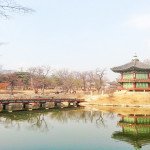
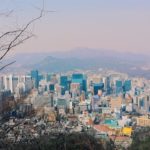
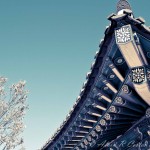
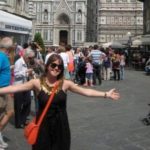
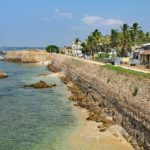
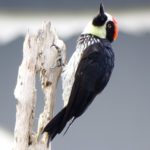
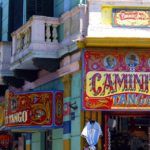
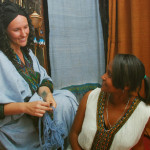
Great photos and beautifully stated by Mar Pages her trip to North Korea. The last time I was there was in 1968 delivering wheat from Australia. Thank you.